Alatau City is designed to rise as a future-oriented urban center that prioritizes sustainability, technological innovation, and green growth. This ambitious project aims to redefine a future of urban living in Kazakhstan and Central Asia.

Designated as a Special Economic Zone (SEZ) under the Presidential degree Alatau City offers investors multiple benefits.
Land and property tax exemptions
- Up to 7 years for investments ≤ 10.35 bln KZT
- Up to 15 years for 10.35–50.025 bln KZT
- Up to 25 years for investments > 50.025 bln KZT
Exemption from import duties for construction materials and equipment
0% VAT for goods sold within AAG SEZ
One-stop service for permits and approvals
Exemption from quotas and permits for hiring foreign labor
Public funding for infrastructure
Long-term land leases with priority buyout rights
International arbitration court
Ideally positioned at the crossroads of several major transcontinental transportation routes, Alatau City offers access to five Eurasian railway corridors and eight international highway corridors. This ensures high connectivity between East and West and positions Alatau as a key node in global trade logistics.
Located near Almaty, the country’s most economically advanced region and former capital, Alatau benefits from strong spillover and agglomeration effects. Its proximity to Almaty allows it to tap into the city’s established business environment, infrastructure, and talent pool, while relieving pressure on Almaty’s overextended urban systems.
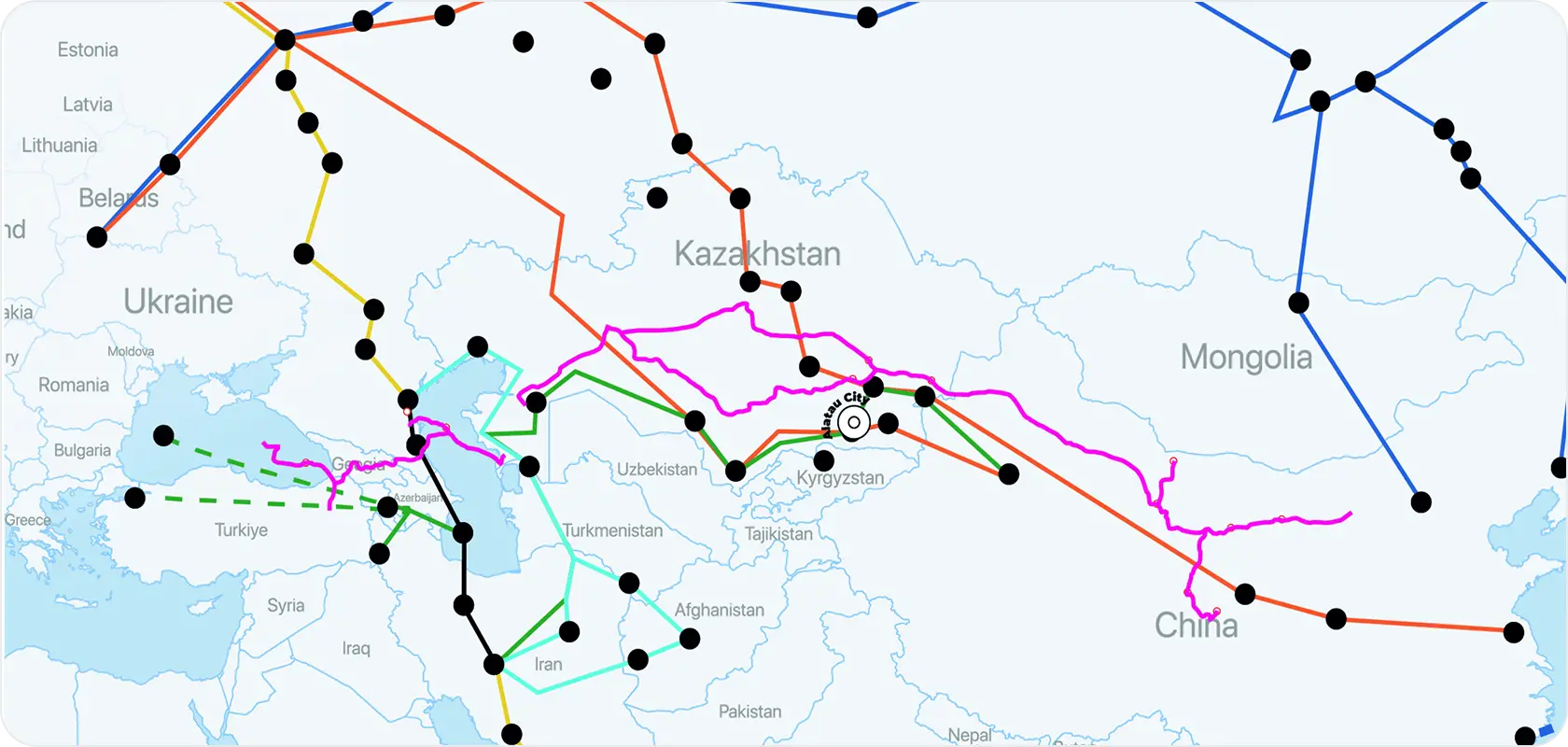

Almaty’s gross regional product (GRP) was $60 bln in 2023, while per capita stood at $26.3 thousand comparable to the level for Eastern Europe. Almaty accounts for a considerable share of national production in such sectors as finance (58%), information and telecommunications (54%), professional services (40%), films and music (57%), programming (58%) and up to 30-40% of the national retail and wholesale market. In addition, Almaty is rapidly growing as a major tourist destination with 53% of inbound international tourists visiting natural resorts located around the city.
Leveraging the booming innovative economy in Almaty region, Alatau is set to strengthen it with the development of future forward sectors.
Almaty is a national center for education and home to some of Kazakhstan’s leading universities, providing a reliable source of highly qualified professionals. It is estimated that 42% of students in Kazakhstan are studying at Almaty universities.
With the country’s young and growing population, Alatau is strategically positioned to harness dynamic young talents to power its development and attract knowledge-intensive industries.

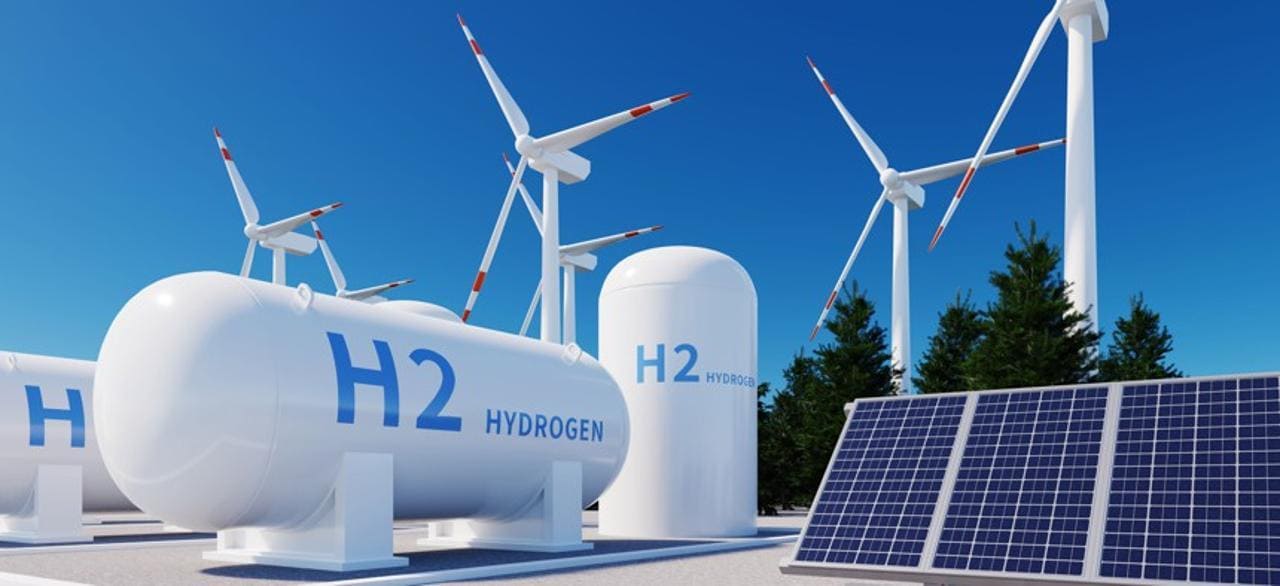
Alatau’s location enables strategic access to Kazakhstan’s vast reserves of critical minerals, essential for the development of digital and green technologies. Kazakhstan ranks among the world’s top producers of several key minerals used in renewable energy, electronics, and advanced manufacturing.
The region’s climate and natural wealth also make Alatau an ideal site for alternative energy development. Notably, hydrogen production holds significant promise, leveraging Kazakhstan’s extensive natural gas reserves.
Alatau City will be featuring advanced industries

Alatau City aims to prioritise development of city mining, focusing on the recovery of critical minerals such as lithium, cobalt, and nickel from used batteries and electronic waste. By establishing advanced battery recycling facilities in partnership with leading innovators from Korea, China, and Japan, the city will support a circular economy model—reducing environmental impact while securing high-value raw materials for future industries. This initiative complements Kazakhstan’s natural resource strengths and positions Alatau as a key hub in the global clean energy supply chain.

Alatau City is advancing Urban Air Mobility as a core component of its smart city vision—integrating electric vertical takeoff and landing (eVTOL) aircraft, autonomous drones, and supporting infrastructure such as vertiports and control systems. UAM will enable fast, clean, and efficient aerial transport for passengers and cargo, reducing congestion and connecting key urban and industrial zones. We welcome global technology partners to collaborate on testing, certification, and commercialization of UAM solutions in Kazakhstan.

Alatau City will pioneer next-generation land transportation solutions, including autonomous vehicles, electric and hydrogen-powered mobility, and intelligent transport infrastructure. We invite leading global companies to participate in testing and co-developing innovative mobility systems that will shape the future of urban transportation.

Alatau City is committed to building a future-ready hydrogen economy that integrates clean energy production, storage, distribution, and consumption. Leveraging Kazakhstan’s existing hydrogen potential, the city will support the deployment of hydrogen-powered vehicles, fuel cell technologies, and industrial applications. Strategic partnerships with global leaders from Korea, Japan, and Europe will drive innovation, infrastructure development, and cross-sector integration—positioning Alatau as a regional pioneer in low-carbon energy and sustainable mobility.
Master plan for Alatau City was developed by a Singaporean firm Surbana Jurong. The City covers a total area of 88,000 hectares, structured into four distinct districts, each with a unique identity and development purpose. The estimated investment requirement is USD 8.1 billion, with a projected economic output of USD 37.2 billion.

Gate District serves as the financial and administrative nucleus of Alatau, reflecting the city’s openness and commitment to international cooperation.
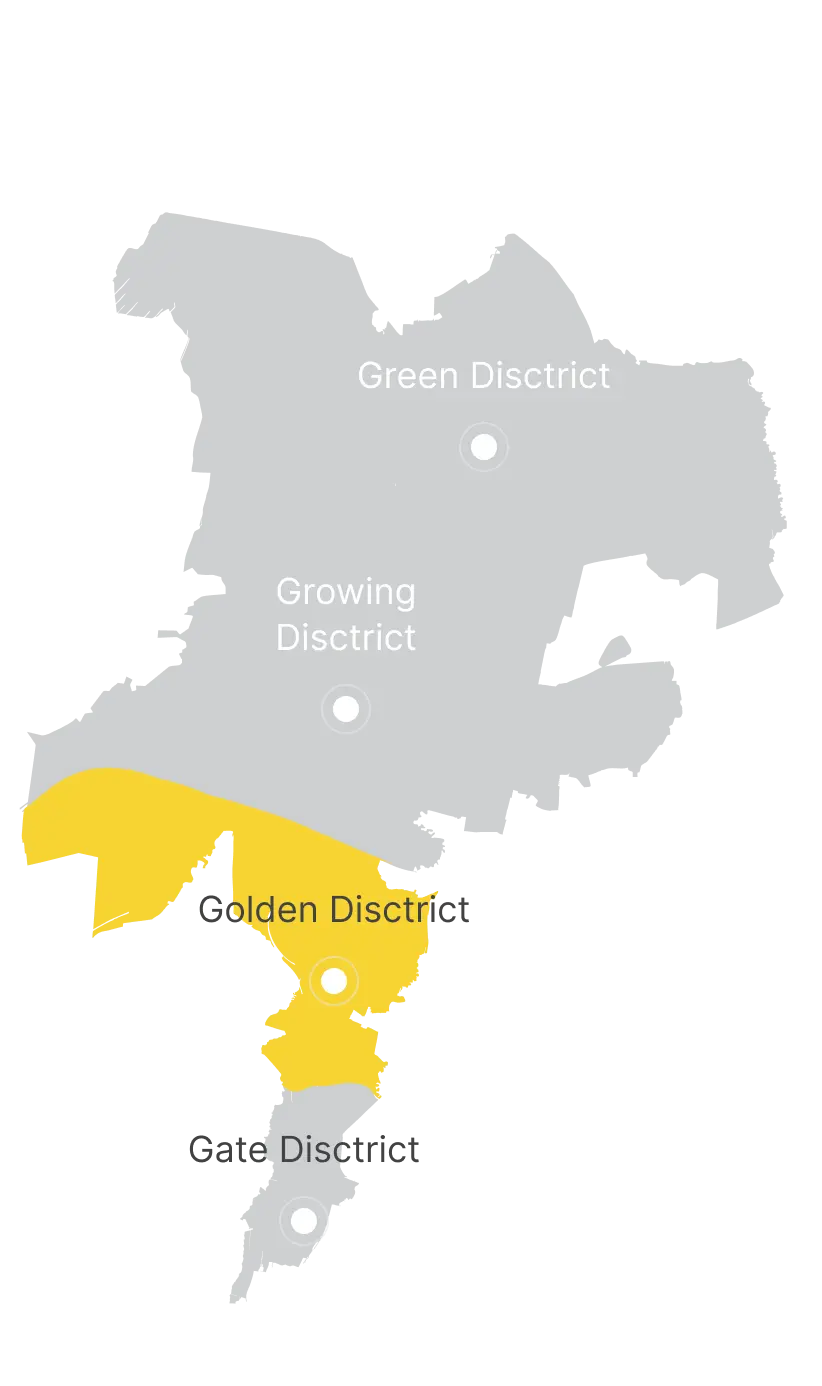
Golden District focuses on the development of education, science, and medicine, creating an ecosystem for innovation and human capital growth.
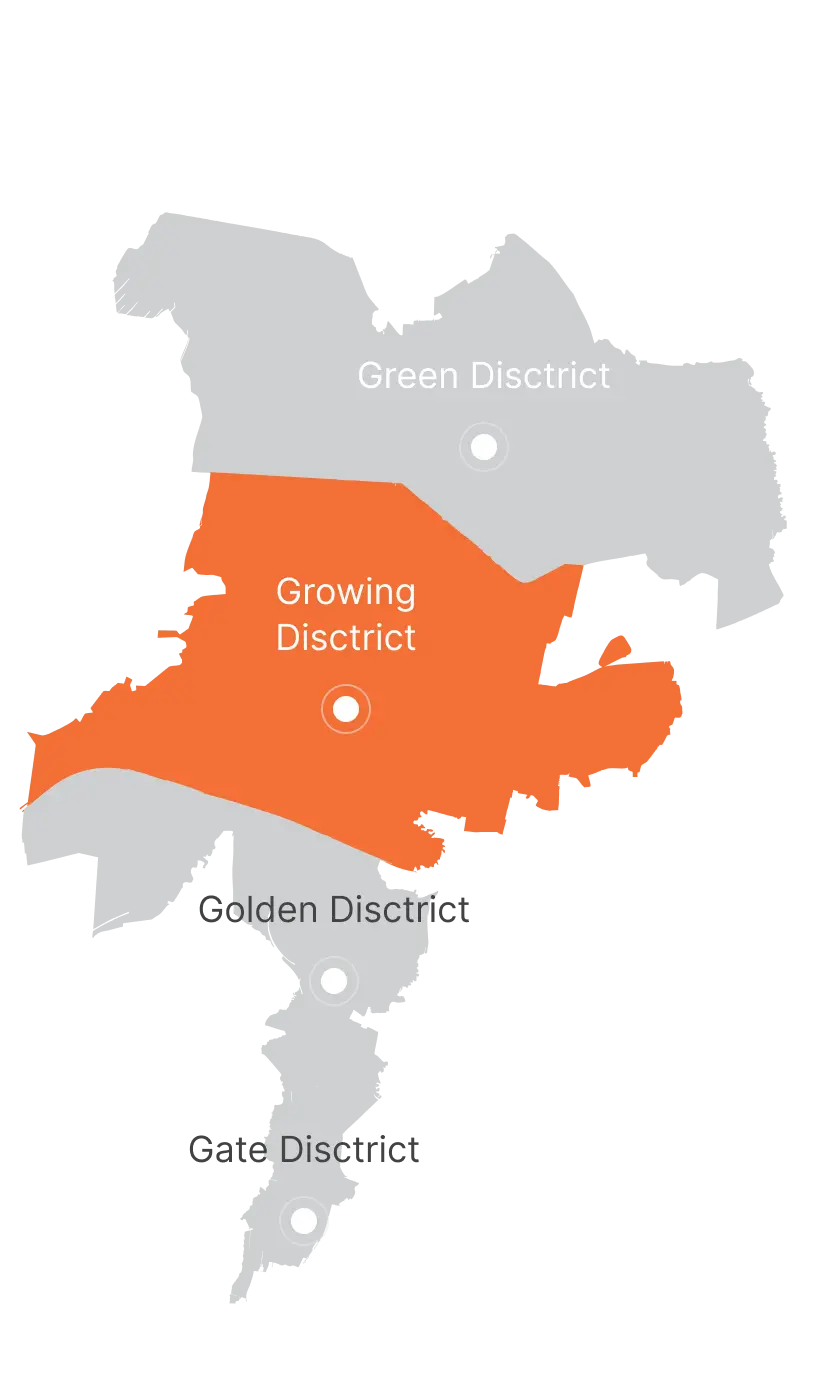
Growing District is an industrial and logistics cluster designed for sustainable development and export-oriented production.
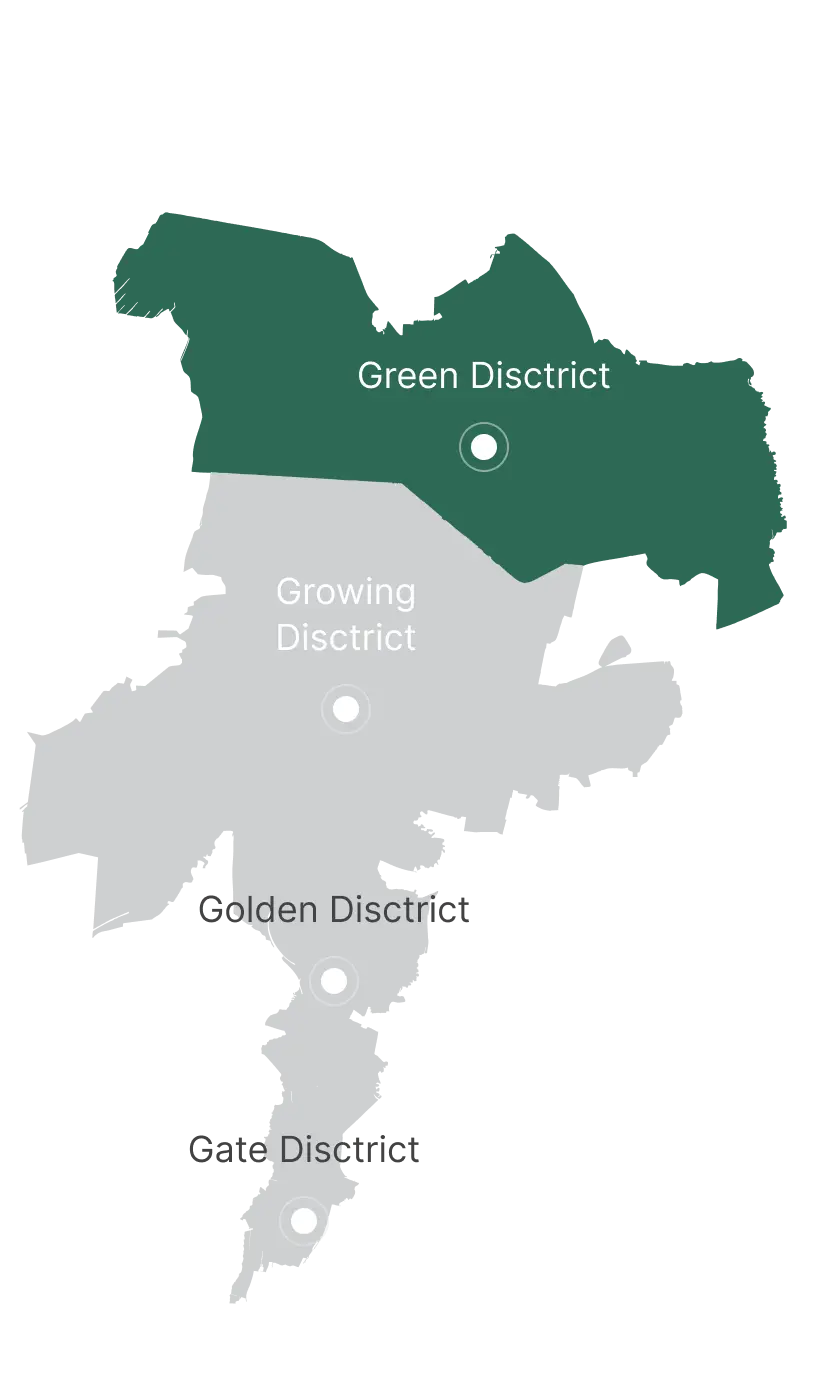
Green District is a lakeside recreational and tourism area offering a harmonious blend of natural beauty and urban living.